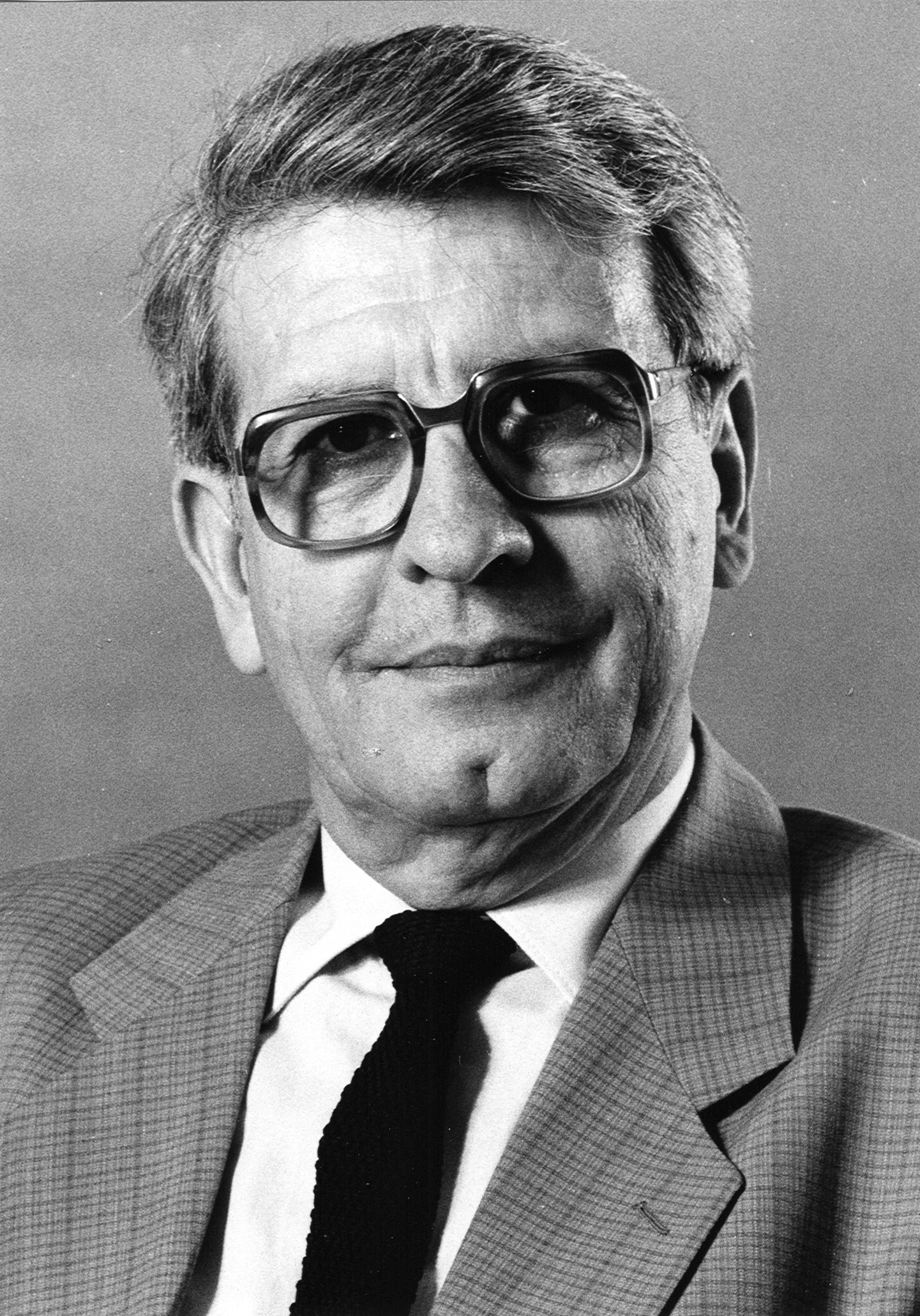The collection of Ljubomir Tadić holds the estate of the prominent professor, intellectual and a critic of the Yugoslav regime. His collection in the Archives of Yugoslavia is significant because it encompasses an abundance of materials that relate to Tadić's socio-political activities for more than half a century.
In 1968, Ljubomir Tadić was one of the leaders of student protests in Belgrade, which is when his conflicts with the government began. He was one of the Belgrade “Praxis” members. Members of the Praxis group were philosophers of so-called “creative”, non-dogmatic Marxism that developed in the early 1960s in Yugoslavia. This resulted in his removal from the faculty in early 1975, together with seven other teachers and assistants, who were labeled "morally and politically unsuitable". From 1976 onwards, Ljubomir Tadić worked with the newly founded Open University.
Tadić was later re-employed as a scientific adviser at the Center for Philosophy and Social Theory, founded in 1981, within the existing Institute of Social Sciences in Belgrade. This center would become where the intellectual democratic opposition to the Yugoslav regime gathered in the 1980s, and later similarly against the Milosevic regime.
Together with Dobrica Ćosić, Ljubomir Tadić was one of the co-founders of the Odbor za zaštitu slobode misli i izražavanja [Committee for the Protection of Freedom of Thought and Expression] which was established in 1984. In the following years the work of the committee, which gathered mainly intellectuals from Belgrade, attracted public attention thanks to the publication of two texts - Predloga za ukidanje neopravdanih ograničenja sloboda i prava [Proposal for the Abolition of Unjustified Restrictions on Freedoms and Rights] (1985) and Predloga za uspostavljanje vladavine prava [Proposal for the Establishment of the Rule of Law] (1986). The Committee put pressure on the government and the public by organizing petitions in which hundreds of Yugoslav intellectuals participated. Initially, the Committee defended all critics of the government regardless of their nationality, but this changed when the political crises began at the end of the 1980s and it began engaging in other issues, particularly with the national Serbian cause in Yugoslavia.
In 1985, Tadić became a corresponding member of the Serbian Academy of Sciences, elected as a regular member in 1994.
At the time Yugoslavia was dissolving, Ljubomir Tadić was engaged in the democratic opposition and was one of the 13 founders of the Democratic Party in December 1989. His son, Boris Tadić, was the president of the Democratic Party and President of Serbia from 2004 to 2012.
The collection of Ljubomir Tadić contains 13 entries, which can roughly be divided into two parts. The first covers private matters and includes personal documents (1935-1997), honors and prizes (1947-1996), family-related materials (1940-1999) and employment documentation (1960-1991). The second part includes the most important sections of the collection covering the author's academic and political engagement from the early 1960s to the end of his life.
One of the most valuable entries, with serial number V, contains materials related to the accusations made against Tadić, his prosecution, and convictions in the period from 1960 to 1986. In addition, archival units VI, VII, and VIII contain important pieces from his academic and culture publications, as well as publications reflecting public opinion on Ljubomir Tadić’s activities. Documents relating to the defense of other individuals who were part of the cultural and political opposition to the regime over 1968-2009 can also be found there. The unit named Political Engagement, contains information about Tadić’s work with various associations and editorial offices, as well as his comments on foreign publications (1974- 2007). Additionally, the collection contains published works of Tadić (monographs and articles), his personal correspondence, other notes and documents, and photographs.
The collection was formally assembled in 2009 at the Archives of Yugoslavia. Previously, its contents were part of a private collection at Ljubomir Tadić's family house and were not available to the public.

